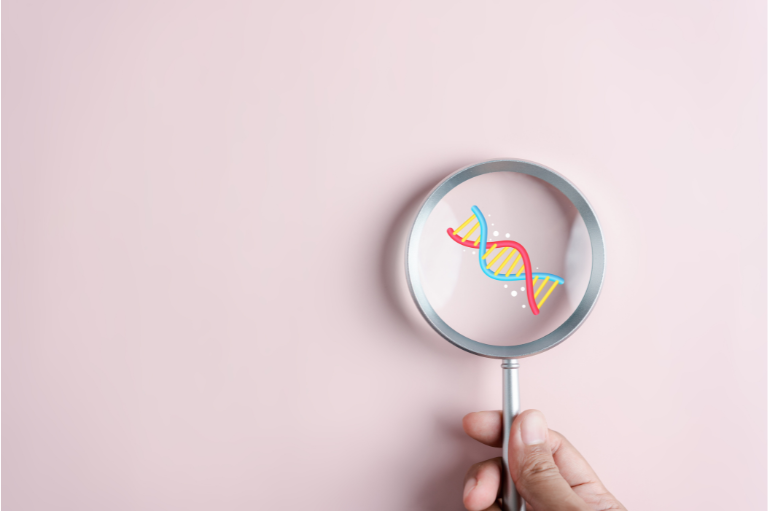Are you sure you want to leave Alexandra Rodriguez's MyShop site?
Are you sure you want to leave Alexandra Rodriguez's MyShop site?
Are you sure you want to leave Alexandra Rodriguez's MyShop site?
Are you sure you want to leave Alexandra Rodriguez's MyShop site?
Written by: Kelsi Irvine, 4Life Research and Development Scientist
Have you ever wondered what exactly makes two people attracted to each other? What was the “spark” that made your parents fall in love?
There are so many things that contribute to a human's choice when it comes to your mate. Looks, personality, proximity, and even sense of humor can be factors that pull at your heartstrings. But did you know that a contributing element to your attraction may be how your prospective significant other smells? That special odor may even be an indicator of your immunocompatibility.1

Animals such as birds, lizards, and fish choose mating partners based off scents that are influenced by major histocompatibility complex (MHC) genes.1 Human DNA also contains MHC genes, which piqued scientists' interest and suggested that humans may also be influenced by olfactory cues or "pheromones."
In 1995, a researcher named Claus Wedekind recruited 49 women and 44 men to test his theory that immunocompatibility influenced human mate selection based on scent preference.1 Wedekind gave the men a clean T-shirt to wear for two nights as they slept. After the T-shirts had collected sweat (and smells) from the male subject, samples were placed in a box with a hole. Women were then presented each boxed T-shirt sample and asked to smell and rank the scents based on preference.
Researchers had the DNA of all male and female participants analyzed to determine which MHC genes were present. In general, the women preferred the smell of men with dissimilar MHC genes from their own.
This study was also replicated in 2005 on a smaller scale and the researchers reported similar results.2 The findings of these studies suggest that MHC genetic dissimilarity influences your preference when finding a match. But what about this specific set of genes is so important?

MHC genes are essential for creating a robust immune system.3 MHC genes direct the development of MHC molecules in almost every cell of the body. MHC molecules play an important role in recognizing and responding to health threats in your body. These molecules are on the surface of your cells and present antigens to the immune system that indicate if a cell is healthy or infected.4
Think of MHC molecules as little flags on the surface of your cells that help your immune system recognize whether those cells are healthy or if a health threat is present. If the cell is unhealthy, these flags give the immune system information to try and fight the problem.
Different MHC genes help your body fight against health threats. This means a wide range of different MHC genes makes up a healthier immune system. Because a variety of MHC genes makes for a healthier immune system, mates that are genetically dissimilar will create offspring who have a greater variety in the MHC genes they inherit.
In the past, offspring of genetically dissimilar parents could better withstand health threats. These humans were more likely to survive than others with a less varied selection of MHC molecules. This means, over time, human populations developed the preference we have now to seek out a partner with an attractive scent. What’s great about this adaptation is it contributes to the development of a stronger immune system!
The intricate dance of attraction involves more than meets the eye—or nose. The importance of MHC genes extends beyond the influence on your natural musk; it directly impacts the development of a robust immune system. As our ancestors sought out genetically dissimilar mates for the survival advantage of diverse MHC genes, we too have inherited an affinity for partners with appealing scents. So, the next time you catch a whiff of someone's natural perfume, remember that it might just be your immune system giving its subtle approval. This is just one more way that the immune system impacts every aspect of your life!
Sources:
1. MHC-dependent mate preferences in humans
2. New evidence that the MHC influences odor perception in humans: a study with 58 Southern Brazilian students
3. The major histocompatibility complex and its functions
4. Major histocompatibility complex-associated odour preferences and human mate choice: near and far horizons - PMC
You are trying to view a MyShop page. Please log out in order to view this website.